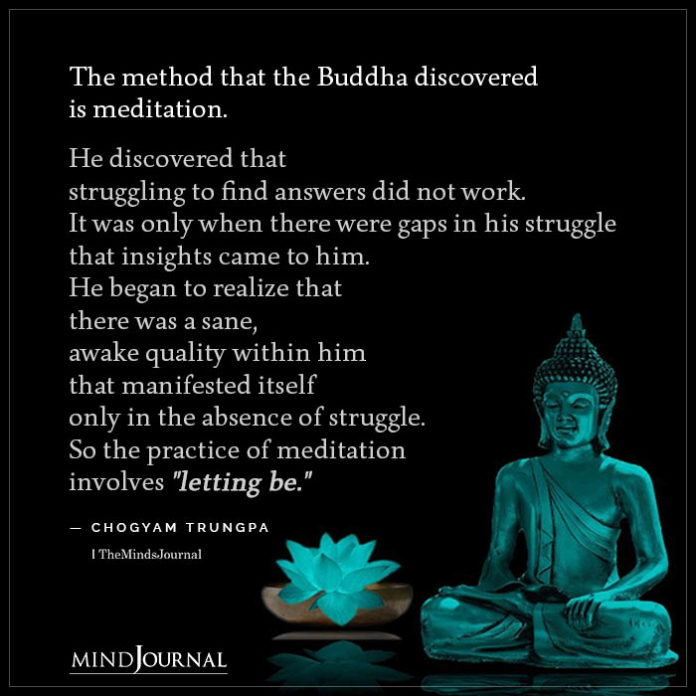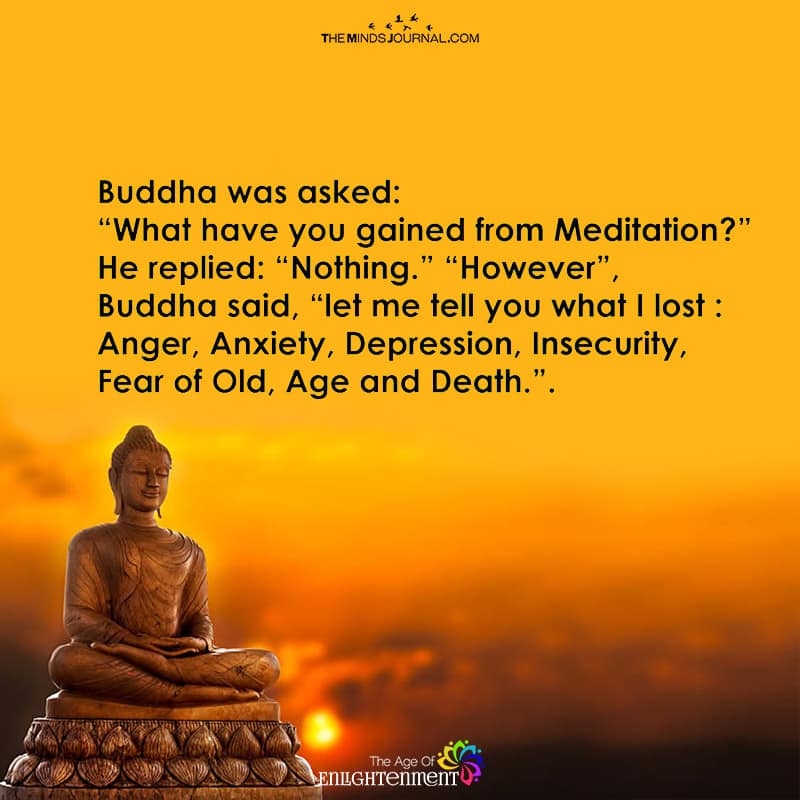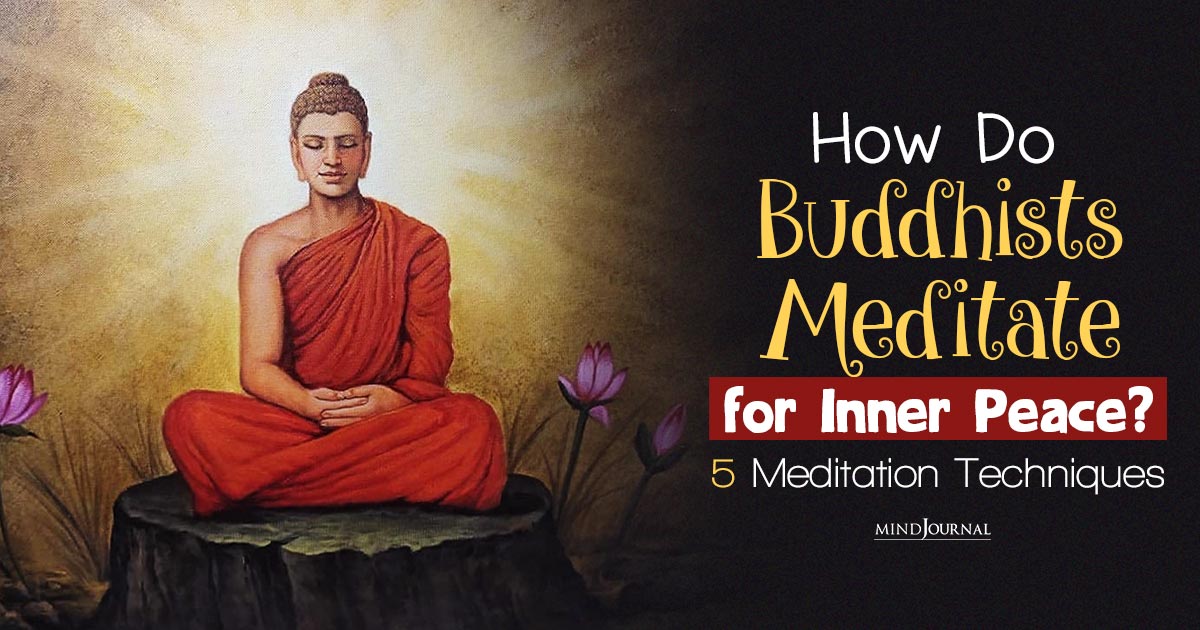Tired of the same old chaotic lifestyle? Desperately looking to catch a break and experience some true inner peace? Then Buddhist meditation might hold the key to tranquility and self-discovery. But how do Buddhists meditate?
Most of us are constantly seeking a sense of inner calm amidst the chaos of everyday life. However, we often find it difficult to cultivate a state of mindfulness and connect with our inner selves. This is where Buddhist meditation techniques come in.
Let us explore the essence of Buddhist meditation, delve into the numerous benefits of Buddhist meditation, and uncover the various techniques that Buddhists employ to achieve a state of profound mindfulness and serenity.
What is Buddhist Meditation?
Buddhist meditation is a practice rooted in the teachings of Buddhism, a philosophy that originated in ancient India. It encompasses a diverse range of techniques designed to develop mindfulness, concentration, and insight.
According to researchers, “Buddhist texts describe meditation practice as aiming to cultivate a state of relaxed alertness,” that should constantly guard against and balance the extremes of hyperarousal (agitation and restlessness) and hypoarousal (excessive relaxation, drowsiness, and sleep).

Buddhist meditation is not solely a religious practice but a transformative approach that can be embraced by individuals of any faith or background. It provides a path to self-discovery, leading to a deeper understanding of the mind, emotions, and the nature of existence itself.
Related: The Beginner’s Guide To Meditation
Now that we know what Buddhist meditation is, let us take a quick look at some of the advantages this ancient practice has to offer so that we can better understand how do Buddhists meditate.
Benefits of Buddhist Meditation
From inner peace to enhanced focus, the myriad benefits of Buddhist meditation can actually help to transform your mind, body and soul. Here are some of the advantages that await you on this spiritual path –
1. Cultivating Mindfulness
One of the core benefits of Buddhist meditation is the cultivation of mindfulness. Mindfulness involves being fully present in the current moment and developing an awareness of one’s thoughts, emotions, and bodily sensations.
By practicing mindfulness through meditation, Buddhists learn to observe their experiences without judgment, fostering a sense of clarity and equanimity.
2. Managing Stress and Anxiety
In today’s fast-paced world, stress and anxiety have become commonplace. Buddhist meditation offers a sanctuary from the pressures of daily life, providing a means to manage and reduce stress.

By training the mind to focus on the present moment, meditators can detach from worries about the future or regrets about the past, finding solace in the present and developing resilience in the face of stressors.
3. Enhancing Emotional Well-being
Buddhist meditation techniques can help individuals cultivate emotional well-being by developing a deeper understanding of their emotions and cultivating compassion towards themselves and others.
Through meditation, practitioners learn to observe their emotions without being overwhelmed by them, fostering emotional balance and a greater capacity for empathy and kindness.
Related: How To Get Into Deep Meditation: 11 Tips To Find Your Inner Zen Now!
4. Improving Concentration and Focus
In a world filled with distractions, the ability to concentrate and focus has become increasingly valuable. Buddhist meditation techniques, such as concentration meditation, enhance mental clarity and sharpen focus.
By training the mind to anchor its attention on a specific object or sensation, individuals develop the capacity to sustain concentration for long periods of time, leading to improved productivity and mental acuity.

5. Gaining Insight and Wisdom
Buddhist meditation is not solely about calming the mind; it is also a means to gain profound insight into the nature of reality and the self.
Through contemplative practices like insight meditation, practitioners learn to observe the impermanence and interconnectedness of all phenomena. This helps you gain wisdom and a deeper understanding of the true nature of existence.
How do Buddhists Meditate? 5 Buddhist Meditation Techniques To Consider
Ever wondered how Buddhists cultivate inner peace and mindfulness through meditation? Here are five contemplative Buddhist meditation techniques to enrich your spiritual journey.
1. Mindfulness Meditation (Vipassana)
Mindfulness meditation is a foundational practice in Buddhism. It involves directing one’s attention to the breath, bodily sensations, or external stimuli while maintaining a non-judgmental awareness of the present moment.
By observing the mind’s tendencies to wander and gently bringing it back to the object of focus, practitioners develop mindfulness and cultivate a sense of clarity and inner peace.
2. Loving-kindness Meditation (Metta)
Loving-kindness meditation is a practice that involves cultivating a sense of compassion and goodwill towards oneself and others. Practitioners repeat affirmations or mentally visualize sending love, well-wishes, and happiness to themselves, loved ones, neutral individuals, and even difficult people.
Related: 20+ Best Meditation Music For Stress And Anxiety Relief
This practice helps dissolve feelings of animosity, enhances empathy, and fosters a profound sense of interconnectedness.

3. Walking Meditation
Walking meditation is a technique that combines mindfulness with physical movement. Practitioners engage in slow, deliberate walking while maintaining awareness of each step, the sensations in the body, and the surrounding environment.
Walking meditation provides an opportunity to integrate mindfulness into daily activities, promoting a sense of groundedness and enhancing awareness of the present moment. This is one of the simplest ways to learn how do Buddhists meditate.
4. Mantra Meditation
Mantra meditation involves the repetition of a sacred phrase or mantra. By focusing the mind on the mantra, practitioners cultivate concentration and a sense of tranquility.
The rhythmic repetition of the mantra helps quiet the mind’s chatter, allowing meditators to delve into deeper states of awareness and access profound levels of consciousness.
5. Body Scan Meditation
Body scan meditation involves systematically scanning and bringing awareness to different parts of the body. This practice cultivates a deep connection between the mind and body, promoting relaxation, releasing tension, and fostering a heightened sense of bodily awareness.
By observing bodily sensations without judgment, individuals develop a greater understanding of the mind-body connection.
Takeaway
Buddhist meditation offers a transformative path towards inner peace, self-discovery, and personal growth. By knowing how do Buddhists meditate and practicing these techniques, individuals can experience a profound shift in their mental well-being, emotional resilience, and overall outlook on life.

So, whether you’re seeking solace from the demands of modern life, looking to enhance your emotional well-being, or simply yearning for a deeper connection with your inner self, Buddhist meditation holds the key.
Begin by incorporating a simple meditation practice into your daily routine, and gradually explore different techniques to find what resonates with you.
Remember, the journey of Buddhist meditation is not about perfection or achieving immediate results. It is a process of self-discovery, resilience, and growth. With time, patience, and regular practice, you will unlock the doors to a profound inner transformation, experiencing the beauty and serenity that lie within.
Related: Meditation As A Spiritual Practice: Spiritual Meditation Meaning And Benefits
Frequently Asked Questions (FAQs):
What do Buddhist do in meditation?
Buddhists focus on mindfulness, breath awareness, loving-kindness, or visualization, seeking inner peace and enlightenment.
How long do Buddhist meditate a day?
Buddhist monks typically meditate for several hours daily, while lay or non-ordained Buddhists may practice for shorter durations.
What kind of meditation did Buddha practice?
Buddha practiced Vipassana, a form of insight meditation focusing on observing sensations and mental phenomena with clarity.










Leave a Reply